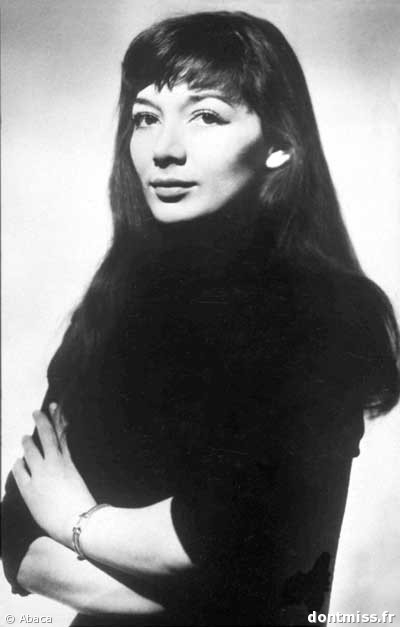
At the Existentialist Cafe was an almost ideal nonfiction travel audio book, a marvellous example of what the French call haute vulgarisation, which means not upper-class swearing, but writing about complicated technical subjects in a style that even someone as thick as myself can follow. This book is a great introduction to the thought of Martin Heidegger, @ least for me, whose previous knowledge of Heidegger was a picture of an old fellow in funny clothes sitting on a bench in a forest. Finally too I think I understand where Husserl fits into the history of philosophy & why he is important. Like Sarah Bakewell, I discovered Existentialism while still @ school, but unlike her I also learned early on that I had no philosophic mind. What appealed to me about Existentialism was the fantasy of hanging about on the rive gauche with girls in black tights whilst wearing a black roll neck jersey. (As the photo above of Juliette Greco illustrates.) My BF @ school was an even bigger fan than I; when Albert Camus was killed in a car smash (not just a car smash, a Facel-Vega smash!), he wore a black necktie in mourning. Still, by the time of the evenements of ’68, it felt like JPS had passed his sell-by date. So for me this book was less a history of a philosophic movement than a chance to revisit the world of my teenage self. But it also gave me @ least some idea of what my grad-student friends were talking about then. One had DASEIN on his licence plates. A young woman friend recommended de Beauvoir’s The Second Sex, tho’ given my tendency to fall in love with women whom I knew to be smarter than I, it wasn’t exactly eye opening. Sarah Bakewell seems to consider that book the most important product of the entire Existentialist programme, & given its huge presence in the feminist movement, she may well be right. But it still feels to me very much an autobiographic memoir by a woman who had been an upper-middle-class jeune fille in the early 20th century, not all that applicable to American women even in the ’60s. But who am I, a male, to comment? Having no capacity for strenuous thought, I feel equally out of my depth commenting on the other Existentialists, but Levinas, Jaspers & Marcel felt like the most worthwhile & morally & spiritually rewarding. I can also see why Merleau-Ponty’s ideas would be attractive to film makers. As for JPS himself, I’m still inclined to think him essentially (yes, I had to use the dreaded ‘E-word’) a fraud, but one who truly believed his own fabrications. All of his own idols turned out to have clay feet, the Soviet Union, China, l’Indochine, Algerie algerienne. Now that Castro is gone, how soon will Cuba succumb to capitalism like China & Vietnam. It was as if Sartre spent his career in search of the cause du jour, to find where the crowd was going next so he could get in front of it. From April 1940 to August 1944, the period of the German occupation & probably the worst in Europe since the Black Death, Existentialism was perhaps the only thing going for a decent human being & given the total failure of the Roman Catholic Church under Pius XII, atheism was the only viable form of belief, except in the extreme forms of Christianity to which martyrs such as Simone Weil & Edith Stein were willing to go. I’m still inclined to the view that Existentialism belongs more to the history of culture (maybe even as in my case, the history of fashion–Bakewell is great on the jeunesse’s passion for American lumberjack shirts) than to the history of philosophy. But as another recent adventure in time travel, The Existentialist Cafe is an absolute delight.
Just downloaded this for a road trip I’m taking this week. Excited to listen to it!
LikeLike
Hope you enjoy it. As I reflect on it, new insights come.
LikeLike